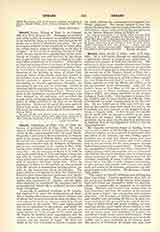

Gerard, MILES, VENERABLE, martyr; b. about 1550 at Wigan; executed at Rochester 13 (30?) April, 1590. Sprung perhaps from the Gerards of Ince, he was, about 1576, tutor to the children of Squire Edward Tyldesley, at Morleys, Lancashire. Thence in 1579 he went to the seminaries of Douai and Reims, where he was ordained April 7, 1583, and then stayed on as professor until August 31, 1589 (O. S.), when he started for England with five companions. At Dunkirk the sailors refused to take more than two passengers; so the missioners tossed for precedence, and Gerard and Francis Dicconson, the eldest (it seems) and youngest of the party, won. Though bound for London, they were driven out of their course into Dover harbor, where they were examined and arrested on suspicion (November 24, N. S.). A contemporary newsletter says that they were wrecked, and escaped the sea only to fall into the hands of persecutors on shore, but this is not consistent with the official records. These show that the prisoners at first gave feigned names and ambiguous answers, but soon thought it better to confess all. After many tortures in the worst London prisons under the infamous Topcliffe, they were condemned as traitors, and “taken to Rochester, where they were hanged and quartered”, says Father John Curry, S.J., writing shortly afterwards, “and gave a splendid testimony to the Catholic Faith“.
J. H. POLLEN.

